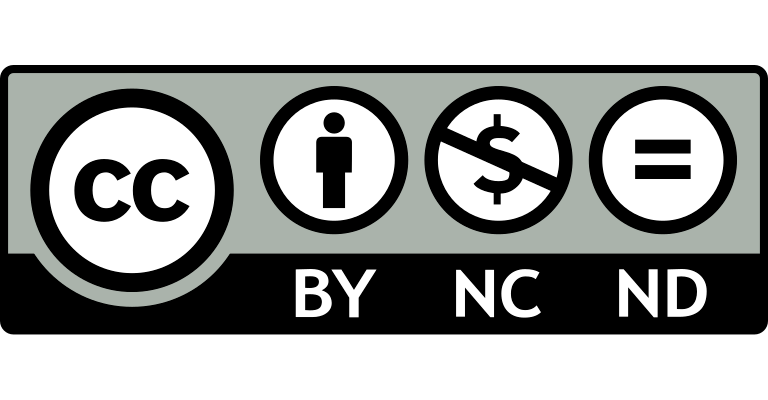INTERNET-BASED INTERVENTIONS FOR THE CARE OF PANDEMIC MENTAL DISORDERS
A SYSTEMATIC REVIEW
DOI:
https://doi.org/10.22370/bre.81.2023.3703.Keywords:
Mental Health, Internet-based interventions, COVID-19, SARS- CoV-2, PandemicsAbstract
Objective: : To describe Internet-based interventions for the care of mental disorders during the pandemic. Material and method: This was a systematic review. The databases PubMed, CINAHL, Web of Science, Scopus, and Virtual Health Library were used. The search strategy used MeSH descriptors, CINAHL Subjects, DeCS: "Adults", "Internet-Based Intervention", and "Mental Disorders" in combination with keywords and Boolean operators. Primary studies were included, in Spanish, English, and Portuguese, between 2019 to 2021, in the context of COVID-19, SARS-CoV-2, and/ or the pandemic. References were imported into EndNote. Methodological quality was assessed according to the Mixed Methods Appraisal Tool (MMAT). Data were analyzed based on thematic analysis. Results: From a total of 303 articles, six duplicates were eliminated, 295 were eligible and five were included. Two studies showed a positive attitude and disposition towards mobile app interventions, two showed significant decreases in anxiety scores, depression, and increased use of text messaging (mHealth) versus this type of intervention and one showed a greater number of telemedicine visits than conventional visits in patients with severe mental illness. Conclusion: he study found that the predominant internet-based interventions were by text messaging and mobile apps.
Downloads
References
Pan American Health Organization. Recommended Interventions in Mental Health and Psychosocial support (MHPSS) during the pandemic. 2020;283. https://www.paho.org/en/documents/covid-19-recommended-interventions-mental-health-and-psychosocial- support-mhpss-during
Santomauro DF, Mantilla Herrera AM, Shadid J, Zheng P, Ashbaugh C, Pigott DM, et al. Global prevalence and burden of depressive and anxiety disorders in 204 countries and territories in 2020 due to the COVID-19 pandemic. Lancet. 2021;398(10312):1700–12. https://doi.org/10.1016/S0140-6736(21)02143-7
Wu T, Jia X, Shi H, Niu J, Yin X, Xie J, et al. Prevalence of mental health problems during the COVID-19 pandemic: A systematic review and meta-analysis. J Affect Disord. 202;281:91–8. https://pubmed.ncbi.nlm.nih.gov/33310451/
World Health Organization. COVID-19 pandemic triggers 25% increase in prevalence of anxiety and depression worldwide. World Health Organization. 2022. https://www.who.int/news/item/02-03-2022-covid-19-pandemic-triggers-25-increase-in-prevalence-of- anxiety-and-depression-worldwide
Jiménez-Molina Á, Franco P, Martínez V, Martínez P, Rojas G, Araya R. Internet-Based Interventions for the Prevention and Treatment of Mental Disorders in Latin America: A Scoping Review. Front Psychiatry. 2019 Sep 13;10:664. https://doi.org/10.3389/ fpsyt.2019.00664
Dworschak C, Heim E, Maercker A. Efficacy of internet-based interventions for common mental disorder symptoms and psychosocial problems in older adults: A systematic review and meta-analysis. Internet Interv. 2022;27:100498. https://doi.org/10.1016/j. invent.2022.100498
Kurniawan K, Yosep I, Maulana S, Mulyana AM, Amirah S, Abdurrahman MF, et al. Efficacy of Online-Based Intervention for Anxiety during COVID-19: A Systematic Review and Meta-Analysis of Randomized Controlled Trials. Sustain. 2022;14(19):12866. https://doi.org/10.3390/su141912866
Page MJ, McKenzie JE, Bossuyt PM, Boutron I, Hoffmann TC, Mulrow CD, et al. The PRISMA 2020 statement: an updated guideline for reporting systematic reviews. BMJ. 2021 Mar 29;372:n71. https://doi.org/10.1136/bmj.n71
Higgins J, Welch V. Cochrane handbook for systematic reviews of interventions. 1st ed. Higgins J, Green S, editors. Nashville, TN: John Wiley & Sons; 2011. https://training.cochrane.org/handbook
Shamseer L, Moher D, Clarke M, Ghersi D, Liberati A, Petticrew M, et al. Preferred reporting items for systematic review and meta- analysis protocols (PRISMA-P) 2015: elaboration and explanation. BMJ. 2015;350:g7647. https://doi.org/10.1136/bmj.g7647
Mathes T, Klassen P, Pieper D. Frequency of data extraction errors and methods to increase data extraction quality: a methodological review. BMC Med Res Methodol. 2017;17(1):152. https://doi.org/10.1186/s12874-017-0431-4
Kidholm K, Ekeland AG, Jensen LK, Rasmussen J, Pedersen CD, Bowes A, et al. A model for assessment of telemedicine applications: mast. Int J Technol Assess Health Care. 2012;28(1):44–51. https://doi.org/10.1017/S0266462311000638
Nha Hong Q, Pluye P, abregues SF, Bartlett G, Boardman F, Cargo M, et al. Improving the content validity of the mixed methods appraisal tool: modified e-Delphi study. J Clin Epidemiol. 2019;111:49-59.e1. https://doi.org/10.1016/j.jclinepi.2019.03.008
Clarke V, Braun V. Teaching thematic analysis: Over- coming challenges and developing strategies for effective learning. Psychologist. 2013;26(2):120–3.
Rauschenberg C, Schick A, Goetzl C, Roehr S, Riedel-Heller SG, Koppe G, et al. Social isolation, mental health, and use of digital interventions in youth during the COVID-19 pandemic: A nationally representative survey. Eur Psychiatry. 2021;64(1). https://doi. org/10.1192/j.eurpsy.2021.17
Miu AS, Vo HT, Palka JM, Glowacki CR, Robinson RJ. Teletherapy with serious mental illness populations during COVID-19: telehealth conversion and engagement. Couns Psychol Q. 2020;1–18. https://doi.org/10.1080/09515070.2020.1791800
Zhou L, Xie RH, Yang X, Zhang S, Li D, Zhang Y, et al. Feasibility and Preliminary Results of Effectiveness of Social Media-based Intervention on the Psychological Well-being of Suspected COVID-19 Cases during Quarantine. Can J Psychiatry. 2020;65(10):736–8. https://doi.org/10.1177/0706743720932041
Richardson C, Patton M, Phillips S, Paslakis G. The impact of the COVID-19 pandemic on help-seeking behaviors in individuals suffering from eating disorders and their caregivers. Gen Hosp Psychiatry. 2020;67:136–40. https://doi.org/10.1016/j. genhosppsych.2020.10.006
Marques G, Drissi N, Díez I de la T, de Abajo BS, Ouhbi S. Impact of COVID-19 on the psychological health of university students in Spain and their attitudes toward Mobile mental health solutions. Int J Med Inform. 2021;147. https://doi.org/10.1016/j. ijmedinf.2020.104369
Kählke F, Buntrock C, Smit F, Ebert DD. Systematic review of economic evaluations for internet- and mobile-based interventions for mental health problems. npj Digit Med. 2022;5(1):1–15. https://doi.org/10.1038/s41746-022-00702-w
Kim SK, Lee M, Jeong H, Jang YM. Effectiveness of mobile applications for patients with severe mental illness: A meta-analysis of randomized controlled trials. Japan J Nurs Sci. 2022;19(3):e12476. https://doi.org/10.1111/jjns.12476
Graser Y, Stutz S, Rösner S, Moggi F, Soravia LM. Telephone- and Text Message–Based Continuing Care After Residential Treatment for Alcohol Use Disorder: A Randomized Clinical Multicenter Study. Alcohol Clin Exp Res. 2021;45(1):224–33. https:// doi.org/10.1111/acer.14499
Friedman AB, Gervasi S, Song H, Bond AM, Chen AT, Bergman A, et al. Telemedicine catches on: changes in the utilization of telemedicine services during the COVID-19 pandemic. Am J Manag Care. 2022;28(1):E1–6. https://doi.org/10.37765/ajmc.2022.88771
Pape M, Geisler BL, Cornelsen L, Bottel L, te Wildt BT, Dreier M, et al. A short-term manual for webcam-based telemedicine treatment of Internet use disorders. Front Psychiatry. 2023;14:216. https://doi.org/10.3389/fpsyt.2023.1053930
Chile. Ministerio de la Salud. Memoria de Departamento de Salud Digital. 2022. https://portalsaluddigital.minsal.cl/wp-content/ uploads/2022/06/Memoria-Depto.-Salud-Digital-2018-2022.pdf
Downloads
Published
Issue
Section
License
Aquellos autores/as que tengan publicaciones con esta revista, aceptan los términos siguientes:
- Los autores/as conservarán sus derechos de autor y garantizarán a la revista el derecho de primera publicación de su obra, el cuál estará simultáneamente sujeto a la Licencia de reconocimiento de Creative Commons que permite a terceros compartir la obra siempre que se indique su autor y su primera publicación esta revista.
- Los autores/as podrán adoptar otros acuerdos de licencia no exclusiva de distribución de la versión de la obra publicada (p. ej.: depositarla en un archivo telemático institucional o publicarla en un volumen monográfico) siempre que se indique la publicación inicial en esta revista.
- Se permite y recomienda a los autores/as difundir su obra a través de Internet (p. ej.: en archivos telemáticos institucionales o en su página web) antes y durante el proceso de envío, lo cual puede producir intercambios interesantes y aumentar las citas de la obra publicada. (Véase El efecto del acceso abierto).









